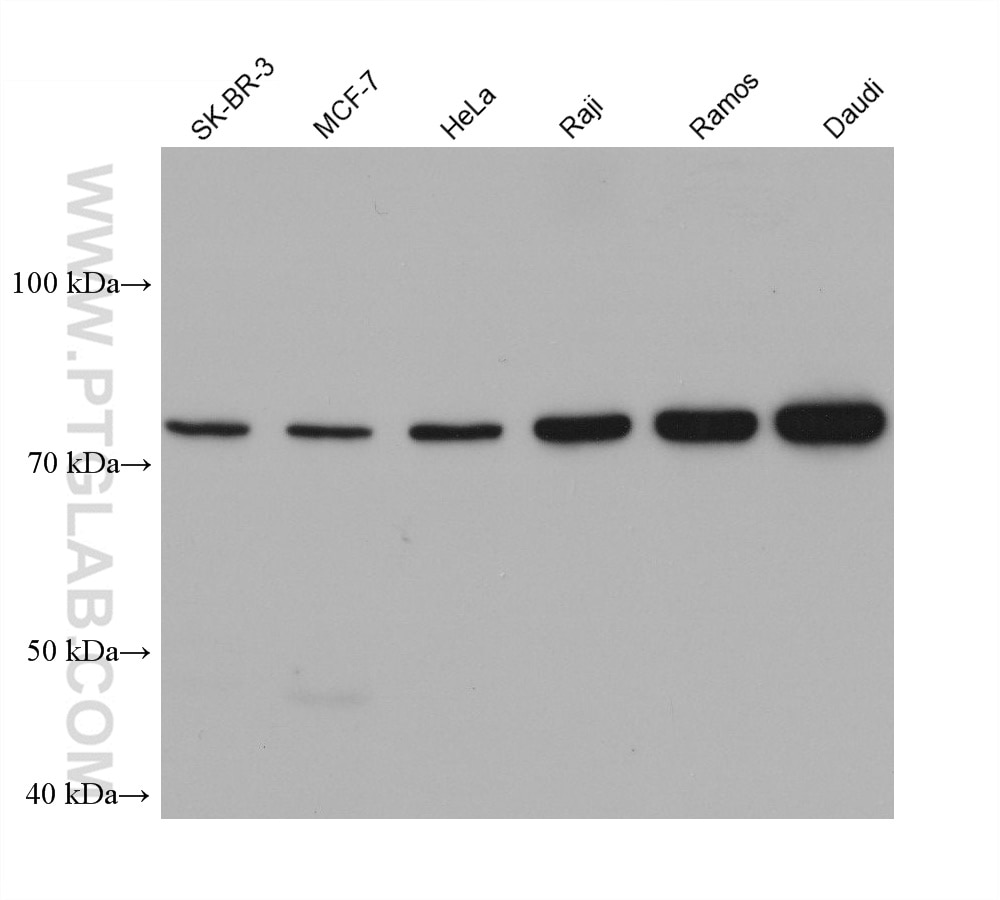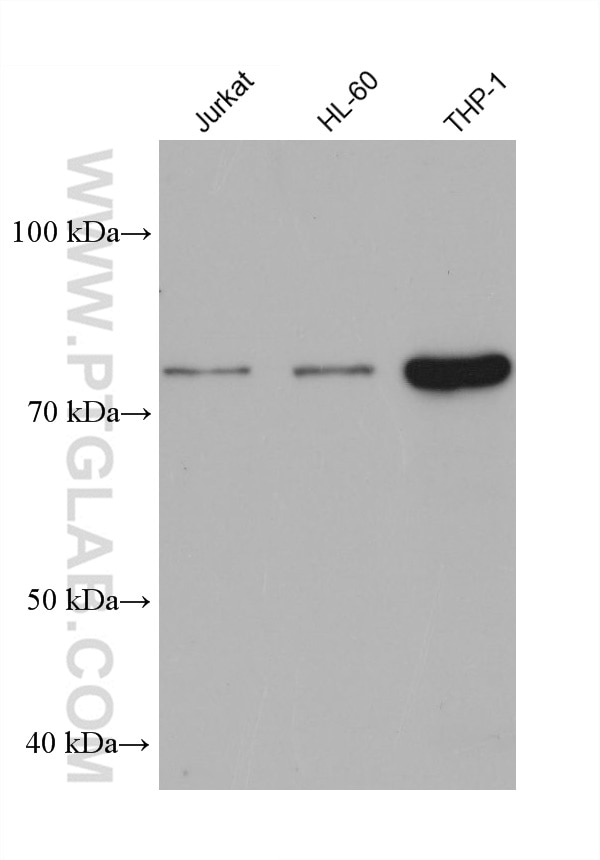Anticorps Monoclonal anti-IKBKE
IKBKE Monoclonal Antibody for WB, ELISA
Hôte / Isotype
Mouse / IgG1
Réactivité testée
Humain
Applications
WB, ELISA
Conjugaison
Non conjugué
CloneNo.
3E4H7
N° de cat : 68531-1-Ig
Synonymes
Galerie de données de validation
Applications testées
| Résultats positifs en WB | SK-BR-3 cells, cellules Daudi, cellules HeLa, cellules HL-60, cellules Jurkat, cellules MCF-7, cellules Raji, cellules Ramos, cellules THP-1 |
Dilution recommandée
| Application | Dilution |
|---|---|
| Western Blot (WB) | WB : 1:5000-1:50000 |
| It is recommended that this reagent should be titrated in each testing system to obtain optimal results. | |
| Sample-dependent, check data in validation data gallery | |
Informations sur le produit
68531-1-Ig cible IKBKE dans les applications de WB, ELISA et montre une réactivité avec des échantillons Humain
| Réactivité | Humain |
| Hôte / Isotype | Mouse / IgG1 |
| Clonalité | Monoclonal |
| Type | Anticorps |
| Immunogène | IKBKE Protéine recombinante Ag30374 |
| Nom complet | inhibitor of kappa light polypeptide gene enhancer in B-cells, kinase epsilon |
| Masse moléculaire calculée | 716 aa, 80 kDa |
| Poids moléculaire observé | 80 kDa |
| Numéro d’acquisition GenBank | BC107812 |
| Symbole du gène | IKBKE |
| Identification du gène (NCBI) | 9641 |
| Conjugaison | Non conjugué |
| Forme | Liquide |
| Méthode de purification | Purification par protéine G |
| Tampon de stockage | PBS avec azoture de sodium à 0,02 % et glycérol à 50 % pH 7,3 |
| Conditions de stockage | Stocker à -20°C. Stable pendant un an après l'expédition. L'aliquotage n'est pas nécessaire pour le stockage à -20oC Les 20ul contiennent 0,1% de BSA. |
Informations générales
IKBKE is a serine/threonine kinase that plays an essential role in regulating inflammatory responses to viral infection, through the activation of the type I IFN, NF-kappa-B and STAT signaling. It is also involved in TNFA and inflammatory cytokines, like Interleukin-1, signaling.
Protocole
| Product Specific Protocols | |
|---|---|
| WB protocol for IKBKE antibody 68531-1-Ig | Download protocol |
| Standard Protocols | |
|---|---|
| Click here to view our Standard Protocols |



